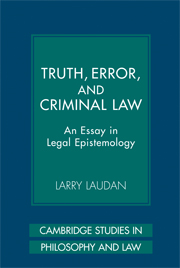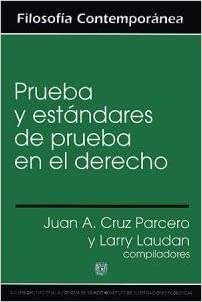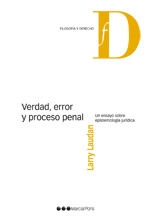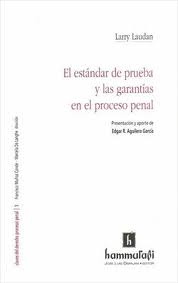Truth, error, and criminal law
an essay in legal epistemology
- ISBN: 9780521730358
- Editorial: Cambridge University Press
- Fecha de la edición: 2008
- Lugar de la edición: Cambridge. Reino Unido
- Colección: Cambridge Studies in Philosophy and Law
- Encuadernación: Rústica
- Medidas: 23 cm
- Nº Pág.: 256
- Idiomas: Inglés

Beginning with the premise that the principal function of a criminal trial is to find out the truth about a crime, Larry Laudan examines the rules of evidence and procedure that would be appropriate if the discovery of the truth were, as higher courts routinely claim, the overriding aim of the criminal justice system. Laudan mounts a systematic critique of existing rules and procedures that are obstacles to that quest. He also examines issues of error distribution by offering the first integrated analysis of the various mechanisms - the standard of proof, the benefit of the doubt, the presumption of innocence and the burden of proof - for implementing society's view about the relative importance of the errors that can occur in a trial.
Read more at http://www.cambridge.org/es/academic/subjects/philosophy/legal-philosophy/truth-error-and-criminal-law-essay-legal-epistemology#SKucTHLVHl9uWPJs.99
1. Thinking about error in the law
2. The unraveling of reasonable doubt
3. Fixing the standard of proof
4. Innocence, the burden of proof, and the puzzle of affirmative defenses
5. Evaluating evidence and procedures
6. Silent defendants, silent witnesses, and lobotomized jurors
7. Confessions, poison fruit, and other exclusions
8. Double jeopardy and false acquittals: letting felons and judges off the hook?
9. Dubious motives for flawed rules: the clash between values.









